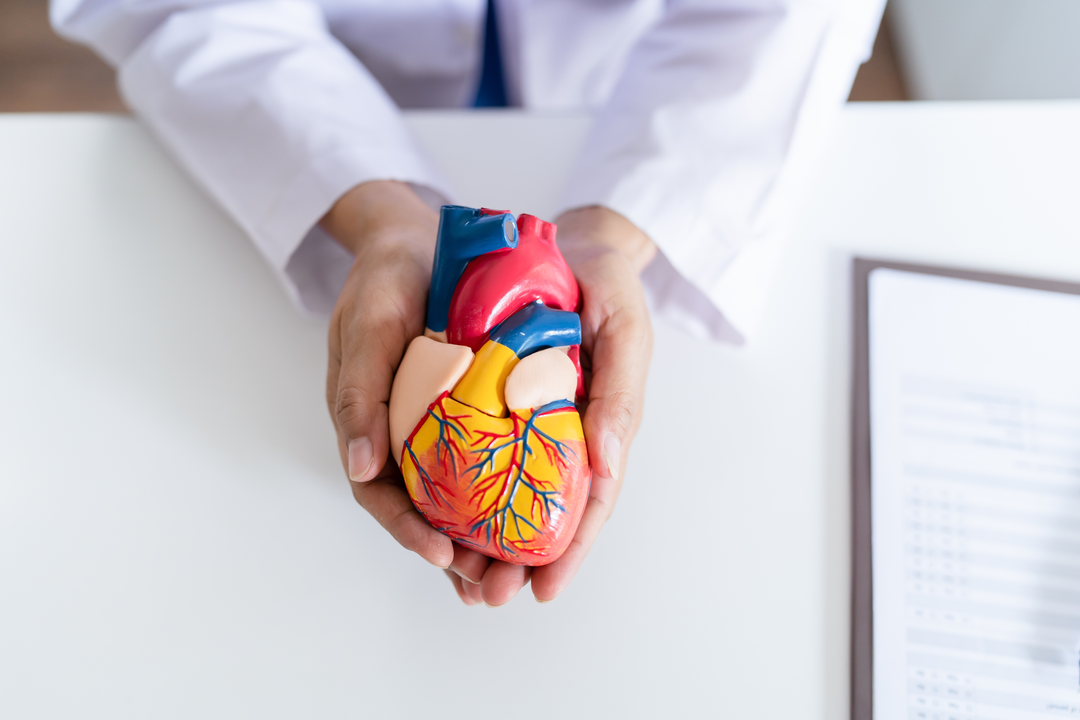Heart failure - The symptoms of heart failure and how to recognize the signs in time
Heart failure, also known as cardiac insufficiency, is a serious condition affecting the heart that can significantly impact the lives of those affected.
Heart failure occurs when the heart is no longer able to pump a sufficient amount of blood into the body to meet the needs of organs and tissues. This results in a variety of symptoms that can greatly affect the quality of life.
So, the motto is: Listen to your heart because when it falls out of rhythm, it can quickly become dangerous.

According to the German Heart Foundation e.V., in the year 2020, over 34 percent of deaths were attributed to diseases of the circulatory system.
Heart Failure – What You Should Know
It is important to note that heart failure is a progressive condition that can worsen over time if left untreated. The aforementioned symptoms can worsen and lead to more serious complications such as heart attacks or strokes.
Therefore, it is crucial to recognize the symptoms early and seek medical help. A doctor can assess heart function and recommend appropriate treatment options. Generally, it doesn't hurt to monitor your health outside of doctor visits, for example, through laboratory tests. These can be easily requested online and performed from the comfort of your home.
Symptoms of Heart Failure
Symptoms of heart failure can be diverse and vary from person to person. The most common ones include:
-
Shortness of breath
A characteristic symptom of heart failure is shortness of breath, especially during physical activity or even at rest. This occurs because the heart cannot pump enough blood into the body, leading to fluid accumulation in the lungs. This symptom can make simple breathing a challenge. -
Fatigue and loss of appetite
People with heart failure often feel extremely tired and weak. The heart works harder to supply the body with oxygen, leading to a constant feeling of exhaustion. The fatigue and weakness associated with heart failure can affect appetite. -
Swelling and weight gain
Heart failure can lead to fluid retention in the body, especially in the legs, ankles, and abdomen. This results in swelling, known as edema.
Due to fluid retention, people with heart failure may gain weight even if they do not significantly change their diet. This weight gain can occur rapidly and should be carefully monitored.
-
Palpitations or irregular heartbeat
Heart failure can lead to heart rhythm disturbances, manifested as palpitations or an irregular heartbeat. These symptoms can be frightening and often require medical treatment. -
Night sweats
Many people with heart failure experience night sweats, leading to restless sleep and sleep disturbances. -
Confusion and memory problems
In advanced cases, reduced blood flow to the brain can lead to confusion, memory problems, and concentration issues.
Listen to Your Heart – How to Recognize Heart Problems Early
To assess cardiovascular risk, especially with risk factors or preventive check-ups, heart tests for total cholesterol, sodium, and hs-CRP should be considered. For example, a heart panel allows a convenient and discreet check of heart health from the comfort of home.

You should pay attention to these values when it comes to your heart health
Total cholesterol is an important component of cell membranes and can increase the risk of cardiovascular disease if it is elevated. A normal range is below 200 mg/dl.
Sodium plays a crucial role in regulating blood pressure and fluid balance in the body. A deficiency or excess can cause various symptoms.
Hs-CRP is an inflammatory marker and can indicate inflammation in the body. Elevated levels can indicate inflammatory diseases or cardiovascular risks.

















